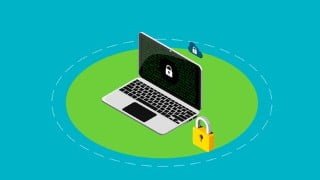Ethical Hacking: Post-Exploitation
Learn how to hack Windows and Linux systems in this beginner’s course. Gain initial access, explore the system, and crack passwords using Kali Linux. Perfect for beginner ethical hackers.
What you’ll learn
- Crack Passwords
- Hack Windows 7
- Hack Linux
- Get System Info
Hacking is an intellectual and physical task that involves penetrating a system or network. Generally speaking, hacking is the act of accessing a computer system or network. The practice of hacking is commonly done by black hat hackers, but white hat hackers also engage in the task. Hacking can be done to facilitate criminal acts such as theft, destruction and extortion. For example, a hacker may access a system without malicious intent and then inform the owner of the incident, who may be able to fix the problem. But it can also be used for securing a companies assets.
In this course you will learn how both Windows and Linux can be hacked. It starts with initial access. Then it goes deeper into exploring the system, the meterpreter shell and how to crack passwords on both Windows and Linux systems. By the end of the course, you should be able to hack both systems as long as you gain initial access.
This is a beginners course, you don’t need prior knowledge of ethical hacking, both knowledge in networks and the command line can definitely help. In this course you’ll use Kali Linux, a computer system that is designed for hacking.
Who this course is for:
- Beginner Ethical Hackers
User Reviews
Be the first to review “Ethical Hacking: Post-Exploitation”
You must be logged in to post a review.







There are no reviews yet.